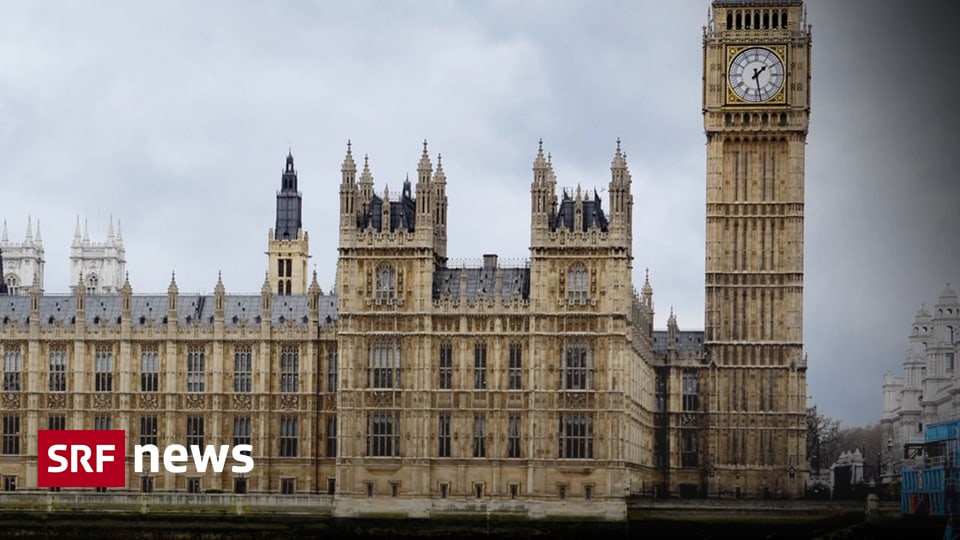
Content
The palace with Big Ben is the seat of the British House of Commons and House of Lords, the seat of power in the United Kingdom. World cultural heritage is impressive, beautiful, but unfortunately very broken. MPs respond to unreasonable demands with the requisite British humour.
The Palace of Westminster is the national symbol of the United Kingdom. Establishing the ceremonial splendor of the monarchy. But especially the heart of British democracy.
Day-to-day life in Parliament is constantly noisy and dramatic. The speaker’s “Orderrrrr…” in the British House of Commons is legendary. However, what is less known is how dangerous the place is. Lord Robert Liswane, leading people through the palace’s dark corridors through thickly carpeted corridors, says it is indeed “disorderly”.
The centuries-old infrastructure is a ticking time bomb in this house that can trigger disaster at any time.
“We have just marched through the reception building of the House of Lords. Beautiful, impressive rooms. You might be wondering what the problem is? But a few meters deep, in the basement, the world looks completely different, says the board member.
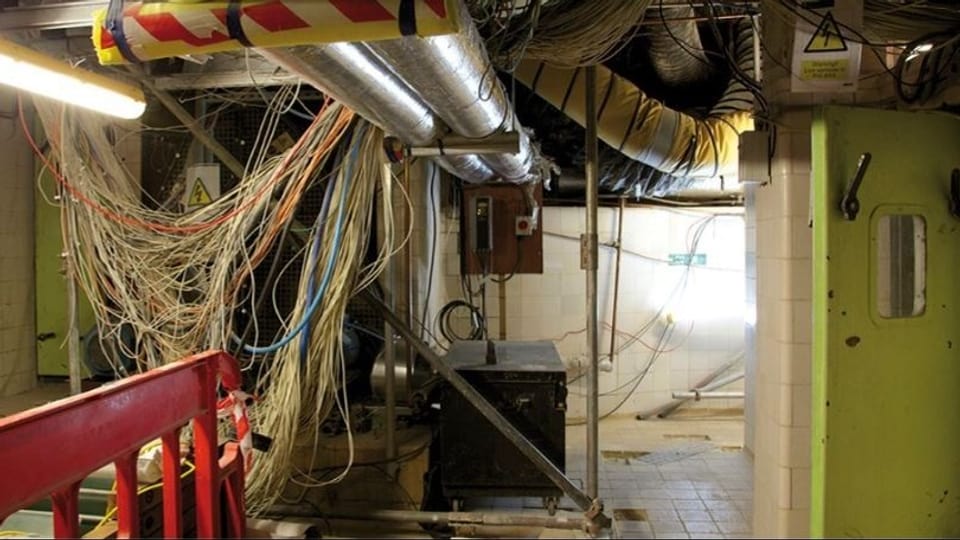
Purana:
Oh dear, what a mess of cables!
Instagram/restorationandrenewal/ho UK Parliament
“I’ll talk about the cathedral of horror. Rusty water pipes, bare copper wires, asbestos, leaking sewer pipes. Rats in between. No one knows which lines are still in use and where they go. New ones keep being put in. Even members of parliament are banned from entering the basement. “Centuries-old infrastructure is a ticking time bomb that could trigger disaster in this house at any moment,” Lisvan says.
Short circuit, small fire and falling stones
In the Palace of Westminster, with its 1,000 rooms and 100 staircases, short circuits and small fires are a frequent occurrence. 650 MPs are not immune from water intrusion even in their green benches. The roof joints have not been tight for decades, Lord Lisvan explains and opens a balcony door on the top floor.
“Ah, kestrels,” sighs the Lord. “They’re hunting pigeons again.” It always makes him a little nervous. “They dismember the pigeons there on the tower and then drop the bloody bones on the tourists in front of the Parliament.” Annoying, but harmless compared to stones that fall with great regularity. Erosion of the ornate, Gothic limestone facade has reached dangerous levels.
The palace begins to crumble. The Deputy Speaker of Parliament politely reminded members of the House that it would be unforgivable if a tourist was killed one day when a football-sized chunk collapsed on the footpath recently.
The move? Excluded!
People don’t just stand by and watch what happens, says Lord Lisvan. Firefighters patrol the five kilometer long corridors day and night. An army of handymen fixes burst pipes and hunts rats.
Every week you spend almost 2.5 million francs on repairs to this house. So about 100 million francs a year, as Lisvain says, “to make sure the palace doesn’t fall down and keep the show going.” But this cannot happen.
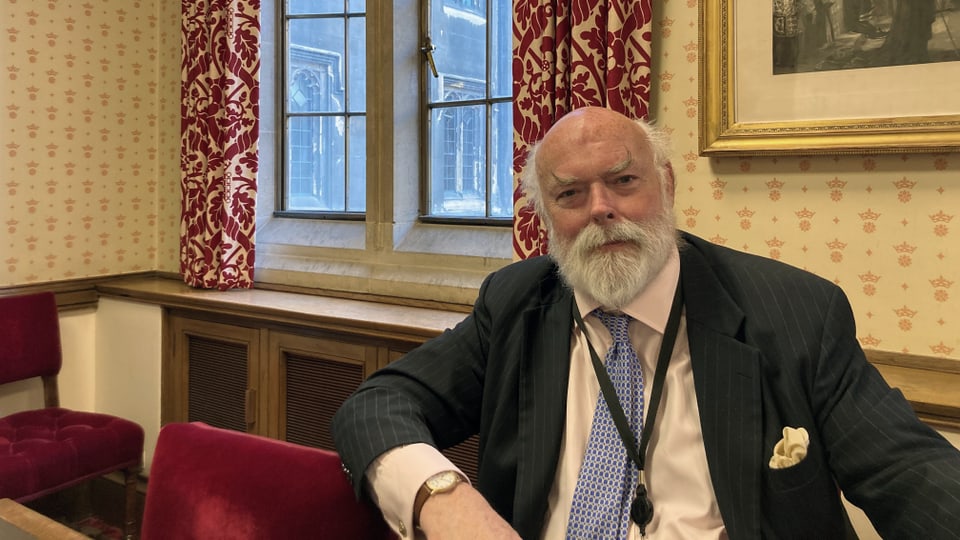
Purana:
Lord Robert Lisvane watches the crumbling of Parliament Buildings with concern – and a pinch of British humour.
SRF / Patrik Wülser
The Palace of Westminster needs renovation. Everyone agrees on that. According to construction experts, a complete renovation would cost around 24 billion francs and take 22 years. During this time, Parliament was to be housed in a temporary facility outside London. A motion that has left many MPs in a tizzy.
Conservative Sir Edward Lee says the Palace is an unbreakable bastion of British democracy, which is why it will certainly not move to a multi-purpose hall in the provinces. So the majority prefers a reshuffle of positions without leaving parliament. This variation is a bit more complicated. It will cost 34 billion and take 76 years.
And where does the money come from?
For the heavily indebted British Treasury, it could be years before Westminster becomes a major construction site. Let’s keep coming back as before – with probably unreasonable demands. In winter, many members of parliament arm themselves against the cold with blankets and bed bottles.
One MP even befriended rats, says Lord Lisvan. As animals began to multiply on the sidewalk, he gently asked her if he could feed the animals. “Oh yeah, sure,” she said. “If there is anything left over from lunch in the afternoon, we put the leftovers in a corner of the office so that we have something to eat at night,” Lord quotes the animal lover as saying.
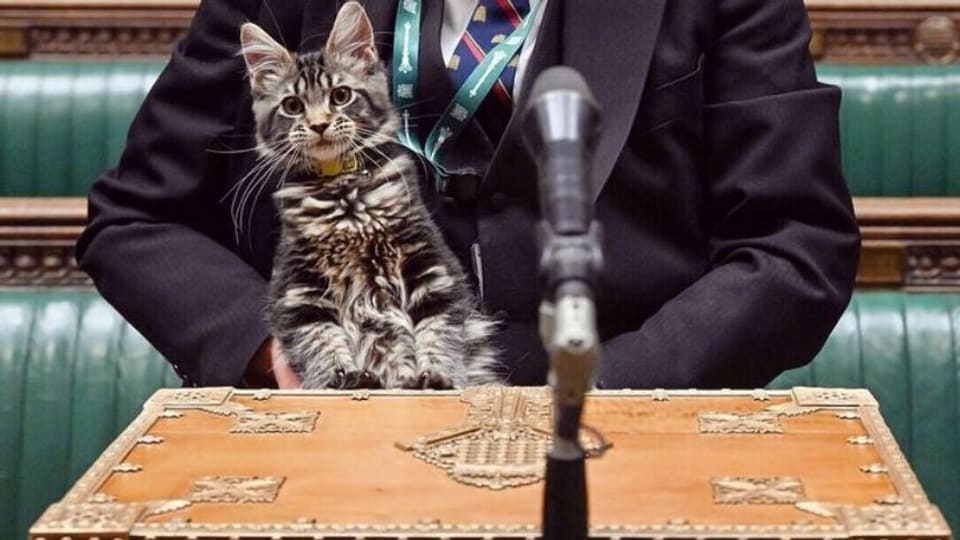
Purana:
A living rat trap for the British Parliament? Attlee, Speaker Sir Lindsay Hoyle’s cat.
Instagram/atlee_the_speakers_cat_
But here, too, there is a temporary solution: to bring the rodent problem under control, the Lower House leader occasionally brings his cat to Parliament, says the Upper House representative with a laugh.
Anyone who listens to him feels more like they’re in a quirky British club than in the political center of nuclear power. But the Palace of Westminster is more than just an impregnable citadel of British democracy. It represents much of what defines this kingdom: history, tradition, ritual, but also patchwork and decay.

“Wannabe pop culture fanatic. Zombie advocate. Entrepreneur. Internet evangelist. Alcohol fanatic. Typical travel buff.”

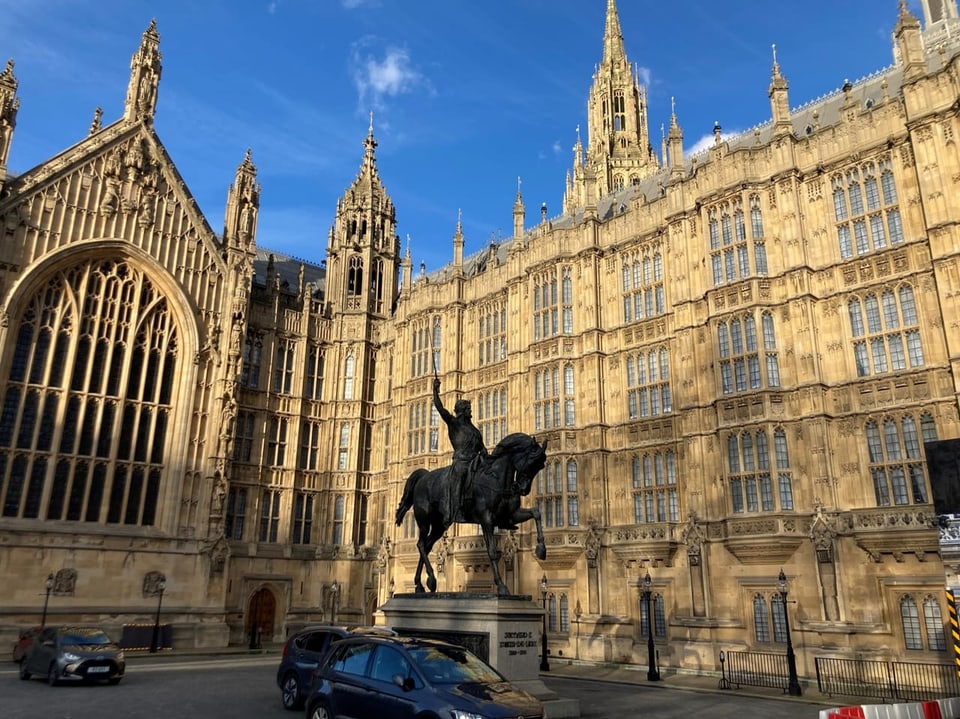
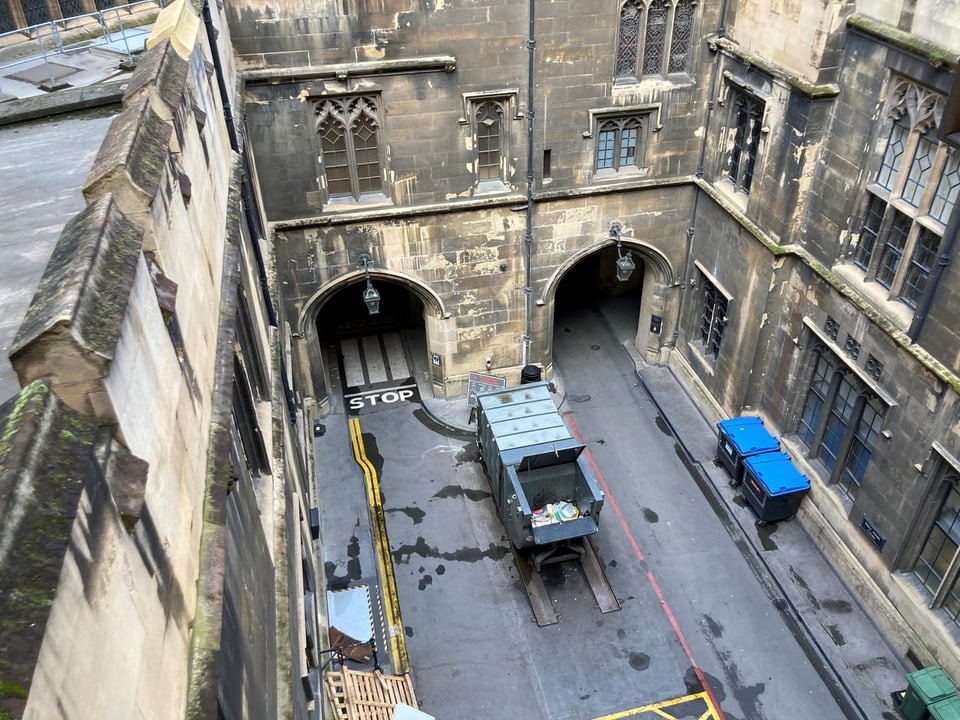
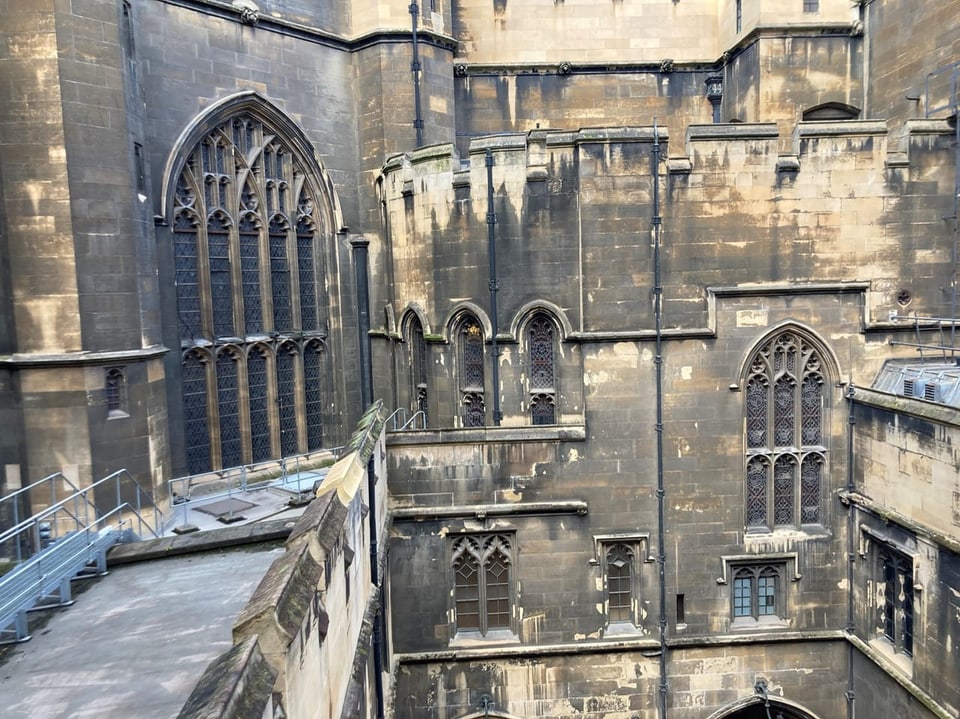



More Stories
Choosing the Right Quality Management Software for Your Industry
If guests bring items: Can shower gel be packed from the hotel?
This diet can prevent death from dementia